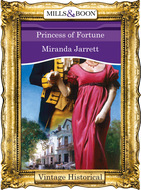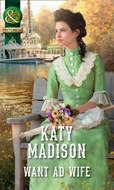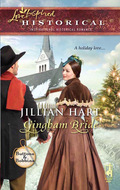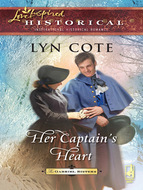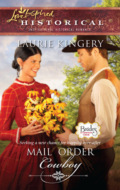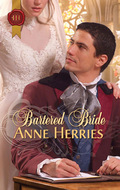Książki nie można pobrać jako pliku, ale można ją czytać w naszej aplikacji lub online na stronie.
Czytaj książkę: «The Silver Lord»
George. A saint’s name, the name of kings and now the name of Feversham’s new owner.
But oh, when did Fan begin thinking of him like that, as George instead of his string of titles? She was his housekeeper, his servant, not his friend and certainly not his lover. To address him with such familiarity would be one more slippery step downward to her own ruin, with no way ever to climb back.
That kiss on her hand had been another. Why, why hadn’t she pulled away? Could she only protest when there were others watching? Or was she so weak that she’d cared more for that shiver of heady pleasure that came from his touch?
The Silver Lord
Harlequin Historical #648
Praise for bestselling author
MIRANDA JARRETT
“Miranda Jarrett continues to reign as the
queen of historical romance.”
—Romantic Times
“A marvelous author…each word is a treasure,
each book a lasting memory.”
—The Literary Times
“Miranda Jarrett is a sparkling talent!”
—Romantic Times
#647 TEMPTING A TEXAN
Carolyn Davidson
#649 THE ANGEL OF DEVIL’S CAMP
Lynna Banning
#650 BRIDE OF THE TOWER
Sharon Schulze
The Silver Lord
Miranda Jarrett

MILLS & BOON
Before you start reading, why not sign up?
Thank you for downloading this Mills & Boon book. If you want to hear about exclusive discounts, special offers and competitions, sign up to our email newsletter today!
Or simply visit
Mills & Boon emails are completely free to receive and you can unsubscribe at any time via the link in any email we send you.
Available from Harlequin Historicals and
MIRANDA JARRETT
Steal the Stars#115
*Columbine#144
*Spindrift#174
Providence#201
*Mariah’s Prize#227
*Desire My Love#247
*The Sparhawk Bride#292
*Sparhawk’s Angel#315
*Gift of the Heart#341
*The Secrets of Catie Hazard#363
Gifts of the Season#631
†“A Gift Most Rare”
†The Silver Lord#648
Other works include:
Harlequin Books
Christmas Rogues 1995
“Bayberry and Mistletoe”
For TFR,
For believing there are second acts!
With Affection & Regards
Contents
Chapter One
Chapter Two
Chapter Three
Chapter Four
Chapter Five
Chapter Six
Chapter Seven
Chapter Eight
Chapter Nine
Chapter Ten
Chapter Eleven
Chapter Twelve
Chapter Thirteen
Chapter Fourteen
Chapter Fifteen
Chapter Sixteen
Epilogue
Chapter One
Feversham Downs, Kent
March, 1802
The fog clung close to the coast, so gray and heavy and icy-wet that it seemed like an extension of the sea itself, risen up into the night sky solely to increase the misery of any shivering creatures it might touch. This fog had stolen away the moon and stars along with all earthly landmarks, and even the great rush and crash of the waves seemed muffled and muted. It was a night fit for neither Christian man nor beast, and certainly not for a lady.
But for Fan Winslow, it was the most perfect night imaginable.
“Keep the light covered, Bob,” she said briskly to the man on the horse beside her. “Even in this murk, I won’t have the risk of a glimmer to betray us.”
Dutifully the man tugged at the hinged window on the tin lantern swinging from the stake in the sand, the awkward bulges in his coat betraying the pistols in his belt. Though there was seldom any trouble, they were always armed; in this trade, it would be foolish to take the risk of doing otherwise. Now only the tiniest pinpricks of light showed through the punched holes on the back of the lantern, and Fan nodded her approval, drawing her black cloak more closely around her huddled shoulders.
Faith, as if that could keep out more of this wretched cold! The fog would always have its way, icy fingers that could creep through the woolen layers of petticoats and stockings and mittens and shawls under her cloak. The only real warmth came from the sturdy little horse beneath her, for Pie’s shaggy rough coat had been bred for weather like this. Fan wasn’t as fortunate, and she pulled the scarf higher over her face, trying to preserve some semblance of a ladylike complexion, even as the salty wet chill made her cheeks ache and her eyes tear, and plastered the few loose curls of her hair like clammy seaweed against her forehead and neck.
Yet still she and Bob Forbert waited on the beach, steadfastly staring out into the fog to where the little boat must be, squinting so hard to see what Fan prayed would be there that her exhausted eyes teared from the effort. Except for those careful few who knew the truth, no one would guess her place by day at Feversham Hall, or understand the risk she took by coming here on this night, and on scores of others like it.
Furtively she puffed her breath against the rough wool of the scarf pulled over her mouth, hoping to warm herself however she could, and twisted the reins in her cold-numbed fingers. It was a perfect night for their trade, exactly the weather she always prayed for. A fog like this kept secrets as surely as the grave itself.
But how long had she been standing here by the sea, the spray that blew towards them like tumbled flakes of snow? Had it been one hour, two, even three? She could reach for the heavy watch she wore at her waist, but to do so would make her look weak and unsure of herself, as if she hadn’t planned and anticipated every last detail of this night. She couldn’t let Bob sense her uncertainty. She couldn’t let him, or any of the others, ever see her be less than absolutely confident.
But hadn’t Father taught her that, never to show doubt to those who depended upon her? These folk are our people, Father would say, his black brows bristling with seriousness, these are the Winslow Company. They’re our responsibility, and you must be ready to put them first. That’s how it’s always been for us Winslows, daughter. We must be brave, be sure, be true. We must, my girl, else we’ll never hold their respect and their loyalty, nor shall we deserve it.
But then Father would never have imagined her in his place here on the beach, waiting with the lantern and pistols and praying that she’d said the right things to make the men follow….
“Leastways they’ll be no red coats after us tonight, mistress,” said Bob, spitting in the sand as an extra measure of contempt. “Nor blue Navy ones, neither. None of them bastards’d take their fat rumps from the hearth in this cold.”
“They’re all fair-weather rogues, true enough,” said Fan. “Let them stay by their hearths, I say, and leave us honest folk to ourselves.”
It had been a warm, clear night early last summer, the air full of the sweet scent of hay and new clover, when Father had let a bellyful of unwatered French brandy at the Tarry Man in Tunford rob him of his common sense. Off he’d stumbled towards the marshes and the beach with his old friend Tom Hawkins, the pair of them bellowing wicked songs about the king beneath the bright crescent moon, certain that there’d be a boat coming in from Boulougne.
And to her sorrow, it was the last she or anyone else had seen of either her father or Tom. Some said they’d drowned and been washed out to sea. Others were sure they’d been murdered, shot dead and their bodies hidden away by some rival company. There was even one version, still popular at the Tarry Man, that they’d simply hopped aboard some vessel for France on a whim, and were there now, drinking their fill of brandy and chasing the ladies and blithely turning their backs on their old lives.
Yet the stories were no more than guesses, without any proof one way or the other. All that Fan knew for certain was that her father had never come back, and that she missed him dreadfully, and that ever since that night, she’d been standing here in his place, waiting and hoping and praying for his return.
“There, mistress, there be the boat!” exclaimed Bob, pointing out through the fog. “Just like you said it would be, mistress! Just like you said!”
Fan nodded again, hiding her relief. She hadn’t been nearly as certain that Ned Markham would risk bringing the Sally in on such a night, but now she could see the bobbing yellow light on the sloop’s prow for herself. The pattern of the signal was the same they’d always used: one quick flash, two slow.
Fan leaned forward to uncover the face of her own lantern, and answered the signal in reverse with two slow flashes, one quick. Then, at last, Fan uncovered her flame and let the beam shine bright and steady, a kind of makeshift lighthouse here on the beach. The Sally’s pilot would need such a signal, for without the lantern’s light, he’d have the devil of a time guessing exactly where lay the mouth of the narrow channel called the Tunford Stream.
On the far side of the dunes the others were waiting, the trusted Company men with the horses, as well as the porters and carriers hired for the night. They all would work together with the Sally’s crew in well-practiced efficiency, bringing seven hundred pounds of China tea ashore without paying a single penny to the Customs House or the Crown.
She watched the boat drawing close, the sail just visible through the mist and fog. The tedium of waiting here on the beach was nearly done, and the next few hours would fly by, a race against the dawn. If everything went as planned, she would see the last pony, laden with tea, off over the hills before the night began to fade on the eastern horizon, and be back at Feversham with the cock’s crow, and so weary she’d barely be able to climb the back stairs to her bed.
“Who be takin’ our tea this time, mistress?” asked Bob, hopping up and down beside her with excitement, or maybe the cold. “The innkeeper in Lydd, same as last week, or that new bloke clear from London?”
“Hush yourself, Bob,” ordered Fan sharply, appalled he’d speak so freely. “Haven’t I told you before to keep your peace about our affairs here?”
“But mistress, I—”
“No chatter, Bob, not even to me,” she answered, cutting him off. “Or is that the path you’re wishing to take, Bob Forbert? Betraying us all with your idle guesses and follies?”
“Nay, mistress,” said Bob, anxiously wringing his hands in their fingerless gloves. “Nay, mistress, not by half.”
“Not by halves nor wholes nor quarters, either,” said Fan. “If you wish to share the Company’s profits, then you must abide by our rules.”
“’Course I shall, mistress!” cried Bob defensively. “I’ve my family to feed, mistress! I’m not like you with only yourself to look after!”
That hurt; that hurt, but since it was the truth, what could Fan say? “Off with you, Bob,” she said, hiding her bitterness, “and tell the others the Sally’s nigh. I’ll follow on my own, as soon as I’m sure they’ve followed the lantern.”
At once the man turned his pony and trotted away across the sand, while Pie whinnied and shifted restlessly, eager to be off as well. Swiftly Fan drew the pony in, wondering unhappily if Bob’s haste was because he was trying to prove his loyalty, or if he simply wished to be away from her criticism.
She’d heard what some of the men in the Company said behind her back, how since her father had disappeared, she’d become sharp-tongued and hard, the worst kind of shrill spinster. It didn’t matter that the Company had continued to prosper under her leadership, or that the runs were planned with greater efficiency now, or even that their profits had grown while the government’s patrols had increased along the coast with the end of the war. All they had to grumble over was the trial of taking orders from a leader in petticoats, even if she was Joss Winslow’s daughter. She didn’t want to consider how much longer they would listen to her, or what she would do if they stopped altogether.
But because Father would wish it, she’d done her best to hold the Winslow Company together, taking each day and night as it came. Whether with the Company or in her place at Feversham, she’d always taken pride in being a hard worker, in doing things the proper way.
Yet now nothing seemed right or proper in her life. Ever since last summer, she’d exactly the same feeling as she had standing on this beach tonight: empty and cold and joyless, and absolutely, completely alone.
Chapter Two
Always prepare for the worst, and you’ll never be disappointed.
This was hardly the sort of cheerful altruism that guided the lives of most English peers. Blue blood and privilege didn’t generally go hand-in-hand with such sturdy pessimism. But although Captain Lord George Claremont had in fact been born the legitimate second son of the Duke of Strachen, he’d learned from hard experience that the worst could be lurking around the next corner, and all too often was.
No wonder, then, that as George leaned back against the musty leather squabs of the hired carriage, he concentrated on how best to attack the rest of this gray Kent morning.
No, not attack. He was in the civilian world now, and civilians did not take kindly to attacking of any sort. He must remember that, even if it broke a habit of eighteen years’ standing. Impatiently he brushed away a speck of lint from the gold-laced sleeve of his good dress coat, refusing to believe it had been quite so long that he’d worn a uniform of the same dark blue.
Sweet damnation, it had been eighteen years, hadn’t it? He hadn’t paused to do the figuring for a while, but the facts were still the same. He’d been only eleven when he’d been unceremoniously sent to sea, as wretched and homesick an excuse for a midshipman in His Majesty’s Navy as was ever created. But the Navy had given him a structure and values that his own family had never had, and against all his wishes he’d survived, even prospered. Now, at twenty-nine, he had risen to be a full captain of one of the fastest frigates in the service with a crack crew of seamen to match, and as thoroughly content with his lot as any man had a right to be in this life.
Or rather he had been content, before the politicians had signed that infernal peace and he’d been deposited on the beach like every other good sailor. At least he was better off than most of his fellow-officers, and with a grumbled oath he remembered the fantastic good fortune that had, finally, brought him here to Kent.
He glanced once more at the printed sheet that the property agent had given him in London.
FEVERSHAM HALL
A Most Handsome & Agreeable Seat of the
First Order in the County of Kent
Discreetly Situated & Elegantly Appointed
Highly Suitable for a Gentleman’s Family
Available for Immediate
Consideration & Possession
The crude drawing beneath this proclamation showed an old-fashioned, rambling house from the stately days of Queen Bess, with dark timbers criss-crossing white plaster walls and diamond-patterned windows. Roses bloomed on either side of the front door and handsome old trees shaded the curving drive, and in the distance was a picturesque glimpse of shining water and an improbable winged goddess with a trumpet hovering over the waves.
Ever skeptical, George frowned at the illustration. “Elegantly Appointed”, hah: most likely there were bats in the chimneys and mice in the walls, and the slates on a roof that old were sure to let in the rain in torrents. He’d no more real use for a grand house in the country like this one than he did for a three-legged cockerel.
He didn’t hunt and he didn’t give grand entertainments that lasted for weeks, the two usual reasons for country living. He didn’t feel the imperative to have a home tagged onto his name, of always being referred to as “Lord George Claremont of Pretentious Hall.” Besides, he’d no intention of lingering on land any longer than he had to, and as for the family that required the suitable arranging that the advertisement had promised—he certainly didn’t have so much as a wife, nor, given his career, was he ever likely to acquire one.
Yet for the first time in his life he had the means to support the title he’d been born to. He hadn’t inherited the dukedom or their father’s debts with it, thank God, the way his older brother Brant had, but he was still a Claremont, and there were certain obligations to the family that should—and now could—be maintained. He was an officer of the king, too. He couldn’t spend the rest of his life ashore living in the same ragtag lodgings over a tavern in Portsmouth.
The carriage slowed to turn off the main road, and with new interest George studied the landscape. There was a wildness to this part of Kent that he’d always liked, so different from the plump, sunny contentedness of his native Sussex. It had the additional advantages of being far enough from Portsmouth to excuse him from calling on admirals’ wives, yet almost exactly equidistant between Claremont Hall, where Brant lived, and Chowringhee, the oddly named house that his younger brother Revell had built for his new wife Sara.
On this overcast day, the flat gray of the sky seemed to merge with the silvery sweep of the Romney Marshes, a place that fell somewhere between land and the restless waters of the Channel. This coast was known to have an unhappy history, replete with shipwrecks and smuggling, and it looked it. The few scattered trees had been bent and gnarled by the wind, and as far as the horizon stretched George could see no friendly curls of smoke to mark a cottage chimney. He’d not be troubled by inquisitive neighbors, that was certain. A desultory handful of gulls riding the wind and a herd of shaggy brown sheep, huddled along a stone wall for shelter as they grazed at the stubbled grass, were the only living things in the entire bleak picture.
The driver turned again and swore as he struggled to control the weary horses. The new road was narrower and even more rutted, and George braced himself to keep from being bounced from his seat to the floor. One more way to hold unwanted visitors at bay, he thought wryly, and craned his neck for his first glimpse of the house that surely must be near.
And once again, he’d been wise to expect the worst.
Clearly the London artist who’d been called upon to draw the house had never seen it for himself, but had made his illustration based on another’s description. Like the blind men and the elephant in the old fable, the stark results were based far more on imagination than reality. The ancient timbers and the white plaster and the diamond-paned windows were there, true, but there was no sign of the gracious old oaks or the rosebushes, and the drive was neither curving nor welcoming, but scarcely more than another rutted path to the door.
“Here we be, M’Lord Cap’n,” said the driver as he opened the carriage door for George. His face was ruddy from the cold, his breath coming in white puffs, as he kept a suspicious eye on the scruffy boy who’d appeared to hold the horses. “Feversham Hall, M’Lord Cap’n.”
George nodded, too intent on studying the house itself to venture more. The old timbers were splitting and silvered, the plaster needed patching, last summer’s weeds still dangled from the eaves, and nothing seemed to be parallel to anything else. Even that wretched boy with the horses would have to be taught to comb his hair and stand properly. If he took the house, he’d have plenty of work ahead to make it shipshape and Bristol-fashion. He’d have to bring in his own people up from the Nimble to see that things were done right, beginning with filling in the ditches in that hideous excuse for a road.
He nodded again, allowing himself a wry smile of determined anticipation with it. A right challenge this would be, wouldn’t it? If Addington and his blasted treaty had put the French out of his reach, at least for now, why not direct his energies and those of his idle crewmen towards replacing rotting timbers and split shingles? Perhaps “attack” had been the right word after all.
Purposefully he climbed the stone steps to thump his knuckles on the front door. The agent in London was supposed to have sent word about George’s arrival to the caretaker who lived in the house—a caretaker who was not only negligent in his duties, but dawdled at answering the door, decided George impatiently as he counted off the seconds he waited. If he took the house, one of his first tasks would be to send this worthless fellow packing.
George knocked again, harder. Where in blazes was the rascal, anyway?
He heard a scurry of footsteps inside, the clank and scrape of the lock being unbolted, and at last the heavy old door swung open on groaning iron hinges that needed as much attention as everything else. That much George had expected.
But he’d never anticipated the woman now standing before him.
She was tall, nearly as tall as George was himself, and even the simply cut dark gown that she wore with the white kerchief around her throat couldn’t hide that she was a handsomely made woman, one that would draw his eye anywhere. Just enough thick, dark hair showed beneath her cap to emphasise the whiteness of her skin, and her mouth had the kind of rich fullness that lonely sailors dream of. She seemed as if she’d been fashioned with the same contradictions as the landscape around her, dramatic and unyielding, beautiful yet severe, with thick-lashed eyes the mysterious smokey-gray of the mist that rose from Romney Marsh.
Yet though she wasn’t some giddy maidservant ripe for dalliance—she was too self-possessed for that—she wasn’t a lady, either, not answering her own door. The housekeeper, then, to stand with such authority. She was most definitely a different kind of beauty from the dithering, highborn London ladies he’d spend the last fortnight with, women so overbred and insubstantial in their white muslin gowns that a good west wind would have blown them away. But not this one, not at all, and George caught himself studying her with considerably more interest than he should.
“Good day, sir,” she said. The clipped words sounded more like a warning than a greeting, nor did she step to one side to invite him to enter. “We have been expecting you, Captain Claremont.”
“Captain Lord Claremont,” he corrected, his smile intended not to soften his words, but to show he meant them. “If you have been expecting my arrival, then you should know how to address me properly. ‘Good day, Captain My Lord’, not ‘sir.”’
Her eyes might have narrowed—he couldn’t be certain from the way the shadows fell across her face—but she most definitely did not smile.
“As you wish,” she said, pointedly omitting any title at all as she finally stepped aside and held back the door.
He walked past her, tucking his hat beneath his arm. As his eyes adjusted from the gray light outside, he could see that the interior of the house was in much the same state as the outside. Everything was well-ordered, scrubbed and swept, clean and in its place, but the cushions on the chairs were threadbare and the walls needed paint, the sorts of shabbiness that came from a lack of money, not inclination.
“Mr. Winslow is to show me the house,” he said as he ran his hand lightly along the carved oak leaves on the newel post. “Please summon him directly.”
“Mr. Winslow isn’t here,” she answered, so quickly that he was sure she’d been anticipating the question. “He is—he is away at present.”
“Is he indeed?” George was surprised; he knew the agent had been quite specific about his visit since there’d been so few inquiries about the house.
“Indeed, he is.” She flushed as she noticed his gaze shift to her clasped hands, looking for a wedding ring. “Mr. Winslow is my father, not my husband. I can show you the house every bit as well as he.”
He held his hat before him and bowed, just from the waist, and smiled. She deserved that from him. It wasn’t any of his business whether she had a husband or not. Still, for some reason he was glad she wasn’t married to the ne’er-do-well caretaker, but instead merely burdened with the rascal as her father. “Then show away, Miss Winslow. Show away!”
She didn’t smile in return the way he’d hoped, though the flush remained in her cheeks. “You will not like the house.”
He frowned. “Why are you so certain?”
“Because none of you fine London-folk do.”
“Then it is a good thing I am neither from London, nor what you would deem ‘fine’, being a sailor,” he said, wondering why the devil she seemed so determined to warn him away. “You are not quite as knowledgeable as you believe yourself to be, Miss Winslow.”
“Nor am I quite so ignorant as it pleases you to think,” she said. “Even here in Kent, we have heard of the ‘Silver Lord’. Rich as the king himself, they say you are now, and all from plundering that Spanish treasure ship.”
“‘They’ do not always tell the truth, Miss Winslow.” He should have realized his new fame would have preceded him, even to this remote place, and he doubted he’d ever grow accustomed to that hideous soubriquet that his own brother Brant had concocted. But unlike the greedy admiration and interest his good fortune had brought him in London, this woman seemed disdainful, her gaze patently unimpressed as it swept over his uniform.
“Now shall you show me this house, Miss Winslow,” he asked, “or will you leave me to find my own way?”
He couldn’t tell if she sighed with resignation, or irritation, or simply took a deep breath as she turned towards the first room to the left of the hall.
“The oldest part of Feversham Hall was built in 1445 by Sir William Everhart,” she began, lecturing like a governess with her hands folded before her at her waist. “It was supposed to be called Rose Hall, but the Feversham stuck instead because of the fevers and miasmas that rose each summer from the marshes. They say from fear of fevers, Sir William wouldn’t come down from London until he’d been assured of a killing frost.”
“I can understand the old gentleman’s reluctance,” said George as he followed. “I saw what yellow-jack could do to an entire fleet in Jamaica. I wonder that you don’t worry for your own health, Miss Winslow, living so near to the marshes.”
She paused, staring at him as if he’d asked the most foolish question in the world. “I have always lived near the marshes, and I cannot imagine living anywhere else. Besides, it’s only the outsiders that are stricken with the fevers. We folk that live here always are never touched.”
“So if I were to make this my home,” he asked, “then I should never be touched either?”
“Shifting your home to here would make no difference at all,” she answered firmly. “Not even you can have whatever you wish to buy. At Feversham, you would always—always—be an outsider. Now here, this is the front parlor.”
He frowned, tapping his thumbs along the brim of the hat in his hands. He was accustomed to being obeyed by his crewmen and most everyone else he encountered in his life, and he certainly hadn’t been corrected with such directness by a woman since he’d left the nursery.
The same woman who’d just turned her back to him—to him!—and was now walking briskly away as if he were nothing more than that lowly stable-boy.
“Miss Winslow,” he said, his voice automatically marshalling the authority of the Nimble’s quarterdeck. “Miss Winslow. Have you forgotten that I have come here solely to inspect this house for the purpose of making it my own?”
Slowly she turned, her hands still clasped before her, and gazed at him over her shoulder with unsettling evenness, almost as if they were equals.
“I have forgotten neither your purpose nor mine, no,” she said, her head tipped to one side so the pale light slipped across the curve of her cheek. “You are here to see Feversham, just as I am here to show it.”
He let out his breath slowly, unaware until that moment that he’d been holding it. “I am glad you have recalled your duty, Miss Winslow.”
“Yes, Captain My Lord.” She turned her head another fraction to the left as she dipped a quick curtsey of unconvincing contrition. “I recall everything. My duty, and my miserable low station before my betters. I shall not forget either again, Captain My Lord.”
Before he could reply she’d swept into the next room, tugging aside the heavy curtains at the windows. Weak sunlight, swirling with motes, filtered through the tiny, diamond-shaped panes and drifted over furniture shrouded in white cloths like so many ghosts. Miss Winslow didn’t glide through the parlor like London ladies, but went striding across the patterned floor so purposefully that her black skirts flurried and fluttered around her ankles in white-thread stockings.
But the skirts and the ankles were the least of it. Why in blazes did he have the distinct impression that by agreeing with him as she had, she’d still somehow bested him?
“There are sixteen chairs made of the same Weald oak to match the panelling,” she announced, twitching aside a dropcloth to display the tall-backed armchair beneath it. “It is considered most rare to have the complete set like this.”
Most rare the chairs might be, but George was in no humor to appreciate it. “That chair is a right ugly piece of work, Miss Winslow,” he said testily, “whether it has fifteen brothers or a hundred, and I’d wager it’s barbarously uncomfortable in the bargain.”
“That is your judgment, My Lord.” A fresh spark of challenge lit Miss Winslow’s gray eyes as she flipped the cover back over the offending chair. “The last master, Mr. Trelawney, appreciated the old ways in his home.”
Darmowy fragment się skończył.


